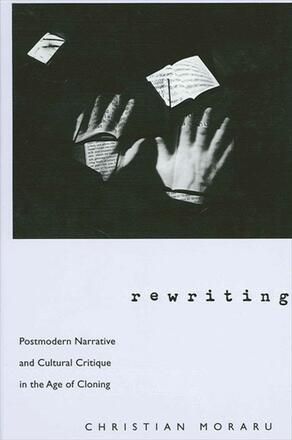
Rewriting
Postmodern Narrative and Cultural Critique in the Age of Cloning
Alternative formats available from:
Examines the tendency of post-World War II writers to rewrite earlier narratives by Poe, Melville, Hawthorne, and others.
Description
Does the postmodern process of rewriting stories by earlier writers point to a crisis of originality in our cloning culture? In Rewriting, the first systematic examination of this tendency in late twentieth-century American fiction, Christian Moraru answers this question with a "no" by examining a wide range of representative writers including E. L. Doctorow, Robert Coover, Paul Auster, Charles Johnson, Ishmael Reed, Trey Ellis, Kathy Acker, Mark Leyner, and Bharati Mukherjee, among others. Moraru shows that in reworking the emblematic nineteenth-century short stories and novels of Hawthorne, Poe, Melville, Alger, Stowe, Thoreau, Twain, and others, postmodern American writers take on—and critically revise—a whole set of values and notions that shape our cultural mythology. Accordingly, Moraru redefines postmodernism in general, and postmodern rewriting in particular, as a culturally innovative and politically enabling phenomenon.
Christian Moraru is Assistant Professor of English at University of North Carolina, Greensboro.
Reviews
"Moraru argues forcibly for inclusion of feminist, African American, and postcolonial points of view in postmodern criticism." — CHOICE
"In studying postmodern rewrites, Moraru's goal is to answer those critics on the Left and Right who see postmodern fiction as mere recycling in our age of cloning … Rewriting is a pleasure to read, as Moraru's writing is accessible and nimble." — American Literature
"Rewriting breaks new ground and resolves a debate central to the understanding of contemporary fiction." — Jerome Klinkowitz, author of Literary Disruptions: The Making of a Post-Contemporary American Fiction
"The book's triple subjects—postmodernism, reading, and intertextuality—are each extremely significant, utterly current, and vigorously debated. The range of this book is exemplary: it reexamines earlier central texts and authors as well as a number of works from the nineties. It will stay fresh for many years." — Brian Richardson, author of Unlikely Stories: Causality and the Nature of Modern Narrative